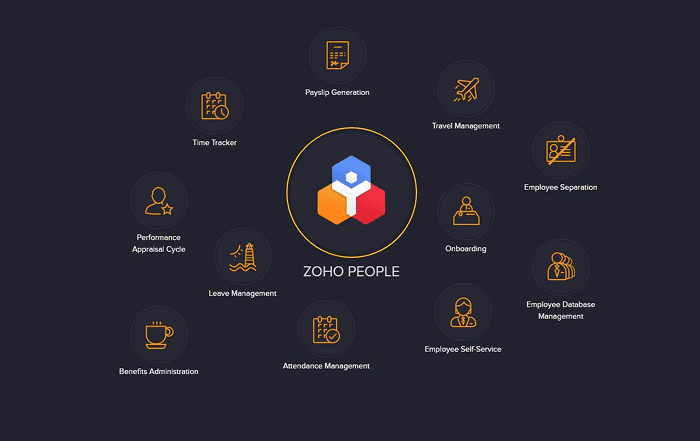
In the modern world, online security should be on the list of everyone’s top priorities. No matter if you’re simply browsing the web or looking to make a purchase, you need to make sure that your sessions are safe.
This is particularly true if you’re running an online business. Nowadays, having a website that’s not properly secured won’t do you any good. That’s why any responsible business owner needs to make sure they secure their business website.
Proper security measures won’t only help you attract and retain customers, but they will also help build up your online reputation. The more trustworthy your business appears, the more appealing it will be to your audience.
So, if you don’t already have proper security measures in place, it’s high time you look into securing your website with an SSL certificate.
-
What is an SSL certificate?
SSL stands for Secure Sockets Layer and it is a digital certificate that enables an encrypted connection. In simpler terms, SSL is a security protocol that helps create an encrypted link between the web server and the web browser.
Businesses that add this type of security protocol to their website will ensure that any type of transaction happening on their website stays entirely safe. This includes any type of transaction, customer information and any other piece of sensitive data.
Naturally, the safer your internet connection is, the less likely any type of information transfer will be to fall victim to misuse and manipulation.
Your website visitors can easily see whether or not your website is secured by an SSL certificate by looking for a padlock icon next to the URL in the address bar.
Another way you can ensure that the website is secure is by looking for the letter s in the URL. The websites that feature this layer of security will have https in their URL instead of a simple http.
It’s also worth noting that the version of an SSL protocol that’s currently being used is actually named Transport Layer Security (TLS) but almost everyone still refers to it as SSL – the original name of this type of protocol.
-
How do SSL certificates work?
As we’ve mentioned earlier, SSL helps protect the privacy and security of any data transferred between two parties – usually a website user and a website or two systems. Thanks to the encryption algorithms that scramble data while it’s in transit, these types of connections are entirely safe from any potential security breach.
That being said, here’s how the entire process looks like:
- A browser or server makes an attempt to connect to a website or web server that’s secured with SSL.
- A browser or server makes a request to the web server to identify itself.
- As a response, the web server sends a copy of its SSL certificate to provide identification.
- The browser or server then checks the validity of the SSL and in case it determines it to be trustworthy, it sends a signal back to the web server.
- The web server then provides a digitally signed approval to start an encrypted SSL session.
- Data shared between the browser or server and the web server is encrypted to prevent any misuse.
Even though this may sound like a lengthy process, it actually takes mere milliseconds.
The professionals at a reputable web development company in Chicago understand the importance of having proper security systems in place, which is why they ensure that every website they help create features an SSL certificate.
-
Why do you need an SSL certificate?
We’ve noted previously that websites need SSL certificates to help keep any data transferred safe. However, that’s not the only reason why websites choose to implement these certificates.
Aside from general security, websites also need SSL certificates to prove ownership of the website, as well as prevent any security breaches.
Moreover, having SSL certificates in place will also help build and improve trust with users, which is certainly something every business should be aiming at.
Think of it this way: If you expect your website visitors to provide their personal and sensitive data, you must make sure you create an environment where they’ll feel safe to do so. Otherwise, you run the risk of your website visitors simply bouncing off to another website that offers this additional layer of security.
Apart from helping build trust with users, an SSL certificate will also help you improve your online reputation and visibility. Google and other search engines prefer secure websites over the ones that are not.
So, what this means is that having an SSL certificate in place will also help you with your SEO, bringing more exposure and visibility to your website.
That’s why it’s safe to say that securing your website with SSL will help you:
- Build trust with your audience
- Provide a more secure environment
- Reach better search engine ranking and visibility
- Boost your online reputation
- Make your website more appealing to a general audience
-
Types of SSL
There are six main types of SSL certificates that focus on different validation levels and they include:
-
Extended Validation certificates (EV SSL)
Extended Validation certificates (EV SSL) are most commonly used for high-profile websites that involve online payments and are the most expensive type of SSL certificates.
When installed, EV SSL will display a padlock, https, the name of the business and the country in the address bar. This way, the website that features this type of certificate is easily distinguishable from fake and malicious sites.
-
Organization Validated certificates (OV SSL)
Organization Validated certificates (OV SSL) are quite similar to the EV SSL, as, in order to obtain it, the owner of the website will need to go through a thorough validation process.
These certificates are the second most expensive type of SSL certificates and they are mostly used for commercial and public-facing websites.
-
Domain Validated certificates (DV SSL)
Since the validation process that’s necessary to obtain the Domain Validated certificate (DV SSL) is minimal, they offer minimal encryption and – thus – lower assurance. This type of SSL certificate is most commonly used for informational websites and blogs.
In other words, they are a perfect fit for any website that doesn’t involve any data collection or money transfer. As such, DV SSL is easy to obtain and is also one of the most affordable types of SSL certificates.
-
Wildcard SSL certificates
Wildcard SSL certificates are a great choice if you have to secure numerous sub-domains, aside from your base domain, on a single certificate. Needless to say, this is far more affordable than obtaining a specific SSL certificate for each of your sub-domains individually.
-
Multi-Domain SSL certificates (MDC)
A Multi-Domain SSL certificate (MDC) is used to secure numerous domain and subdomain names. As such, it can be used to secure domains and subdomains with Top-Level Domains (TLD).
However, since MDC doesn’t support sub-domains by default, if you wish to include them in the certificate as well, you’ll need to specify it when obtaining the MDC.
-
Unified Communications Certificates (UCC)
Unified Communications Certificates (UCC) are similar to Multi-Domain certificates. With this type of certificate, website owners can easily secure multiple domain names on a single certificate.
Naturally, it’s always advised to familiarize yourself with different types of certificates in order to be able to make the best choice for your website specifically.
-
How to obtain an SSL certificate?
SSL certificates are obtained from Certificate Authority (CA). The cost of an SSL certificate can range from hundreds of dollars to absolutely free, depending on the type and level of security you’re aiming to get.
When you determine the type of certificate you need, start looking for Certificate Issuers that offer that specific type of certificate.
Once you obtain the certificate, you will need to configure it on your web host. This can be either the server you host your own website on or the web host you’ve chosen when creating your website.
Keep in mind that the time necessary for obtaining the certificate will vary depending on the type of certificate, the validation process and the level of security you require.
-
How to ensure your online sessions are safe?
When required to submit any type of sensitive data online, you should do so only with websites that feature an EV or an OV certificate, as these provide the highest level of security.
Next, look for the website’s Privacy Policy section to see how your data will be treated. Trustworthy websites will be transparent about this, so if the website you’re browsing is not – better terminate your session to avoid any potential inconveniences.
Additionally, you should also browse the website for physical address or any other type of contact information, which are also considered good trust indicators, aside from the SSL certificate.
Finally, make sure you stay aware of various phishing scams as you can easily fall victim to them if you’re not careful enough.
-
To sum up
Every website owner that wants to attract a large audience and boost the visibility of their website should obtain an SSL certificate.
This will create a safe environment for their visitors which will not only encourage them to stay on the website longer, but will also make them more likely to take the desired steps towards conversion.
Since online security is so important in this day and age, not taking the necessary steps to secure your website simply doesn’t make sense.







